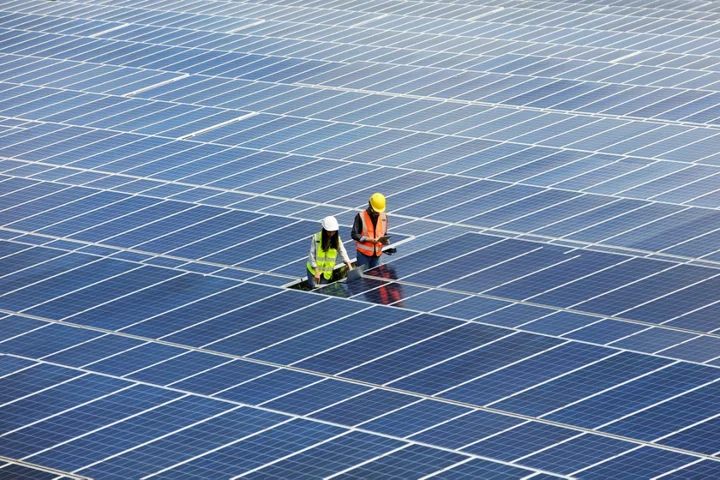The cost of solar power has dropped by nearly 90 per cent over the last decade, according to new research, taking it towards a key level that will make fossil fuel-generated power no longer economically viable.
Calculations by Berlin-based Mercator Research Institute on Global Commons and Climate Change (MCC) found that the plummeting price of electricity produced by solar panels – down 87 per cent since 2013 – means the transition to renewable energy sources is “cheaper than expected”.
The falling costs of batteries and other renewable technologies could also help supercharge the trend towards cleaner energy and meeting climate targets.
“Some calculations even suggest that the world’s entire energy consumption in 2050 could be completely and cost-effectively covered by solar technology and other renewables,” said Felix Creutzig, who led the research.
“This is an extremely optimistic scenario – but it illustrates that the future is open. Climate science, which provides policymakers with guidance in its scenario models, must reflect technical progress as closely as possible.”
The publication of the research follows recent analysis that showed the cost of batteries fell by nearly 10 per cent last month.
Energy analytics firm Benchmark Mineral Intelligence said the drop below $100/ kilowatthour (kWh) in August took batteries past a “tipping point” that puts electric vehicles (EVs) on a price parity with fossil fuel-burning vehicles.
As well as accelerating the transition to EVs, the fall in battery prices is also a big boost for renewable energy technologies like solar and wind installations, as they use batteries to store excess energy during periods of overproduction.
The falling costs for renewable technologies has been attributed to scientific breakthroughs that make them more efficient, as well as decreasing raw material costs.
“Greenhouse gas emissions are higher than ever and the measures taken so far are too weak, but in this politically difficult situation, technological progress provides a ray of hope,” said Jan Minx, head of the MCC Applied Sustainability Science working group and one of the leaders of the latest research.
“New scenario models, some of which are starting to be explored, are likely to demonstrate in the foreseeable future that the global climate transition might not be as expensive as previously assumed, and may even be cost saving – provided it is finally tackled.”
The research was detailed in a study, titled ‘Technological innovation enables low cost climate change mitigation‘, which was published in the journal Energy Research and Social Science.
Read MoreHundreds of years after it was discovered, one material is about to change the world
Solar panel breakthrough could supercharge ‘miracle material’ production
Scientists invent solar panels that work in a snow blizzard
New discovery is ‘holy grail’ breakthrough in search for aliens, scientist say









